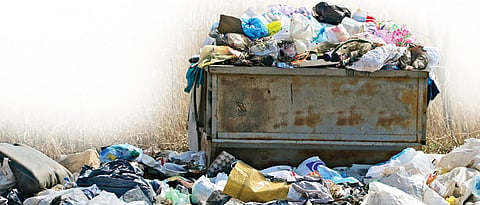

The government implemented the State-wide plastic ban from June 23, a move welcomed by environmentalists, NGOs and people alike. On the ‘World Environment Day’ that India hosted this year, the theme of the programme was ‘Beat plastic pollution’. Minister at Ministry of Science & Technology, Ministry of Environment, Forest and Climate Change and Ministry of Earth Sciences Dr Harsh Vardhan had said, “India is excited to host the World Environment Day. Indian philosophy and lifestyle have long been rooted in the concept of co-existence with nature. We are committed to making Planet Earth a cleaner and greener place.”
He had added, if each and every one of us does at least one green good deed daily towards our green social responsibility, there will be billions of green good deeds daily on the planet.
Meanwhile, the plastic ban covers plastic bags, disposable cups and plates, plastic cutlery, non-woven polypropylene bags, plastic pouches and packaging, and thermocol. And according to the law now, those caught manufacturing, using, selling, transporting, handling and storing them, will be fined Rs 5,000 for the first offence, Rs 10,000 for the second and Rs 25,000 for every subsequent violation. All sounds good! But what about proper implementation and was the move planned well by the State government? Government should work on providing enough alternatives
After the ban was implemented, shopkeepers and hoteliers struggled to find proper alternatives to plastic bags. Big retailers like D-Mart, Big Bazaar and others switched to alternatives after the decision of plastic ban but small retailers and shopkeepers and hotels are struggling to find a suitable and affordable option. So in such cases, it is quite possible that small shop owners and hotels, who are finding it difficult to find an alternative, will switch back to plastic carry bags and containers. Hence, it is the duty of the State government to provide enough eco-friendly alternatives to plastic bags to shopkeepers and people. In this, they will have to carry out a detailed study of the problems faced by users and look for alternatives. They can involve self-help groups in the production of alternatives to plastic bags. If alternatives are provided on time, there will be less chaos among people.
Plastic ban a continuous process
Initially, while implementing the ban in the State, there are going to be teething problems, as the implementation of the plastic ban will be a continuous process. The government officials and civic bodies will have to keep continuous check on the use of plastic in the State. Also, it is important to create awareness among people about the harmful effects plastic has on the environment. People should be made aware of the alternative they can use to plastic. The government body can make use of social media and other forms of communication to create awareness among masses.
Impact on jobs
The State-wide plastic ban, including carry-bags and thermocol by the Devendra Fadanvis government, will result in loss of up to Rs 15,000 crore and nearly 3 lakh jobs, said the plastic manufacturing industry. “The ban imposed by Maharashtra from Saturday has hit the industry very hard and the plastic industry is staring at a loss of Rs 15,000 crore, leaving nearly 3 lakh people jobless overnight,” Plastic Bags Manufacturers Association of India General Secretary Neemit Punamiya had said. Nearly 2,500 members of the association have left with no option but to shut shop following the ban, he added and termed the ban as ‘discriminatory’. In this scenario, it is the duty of the government to patiently listen to the problems of the industry involved in plastic manufacturing, as it is going to leave them jobless. The government can take steps to find alternative jobs for the people or involve them in providing alternatives to plastic bags.
Public participation most important
Even if the government implements plastic ban, without the participation of people, the ban is not going to work out. People should actively participate in abandoning plastic items and cooperate with the authorities in the implementation of the ban. The plastic ban will be successful only when people along with the authorities collectively take steps towards a better environment.
